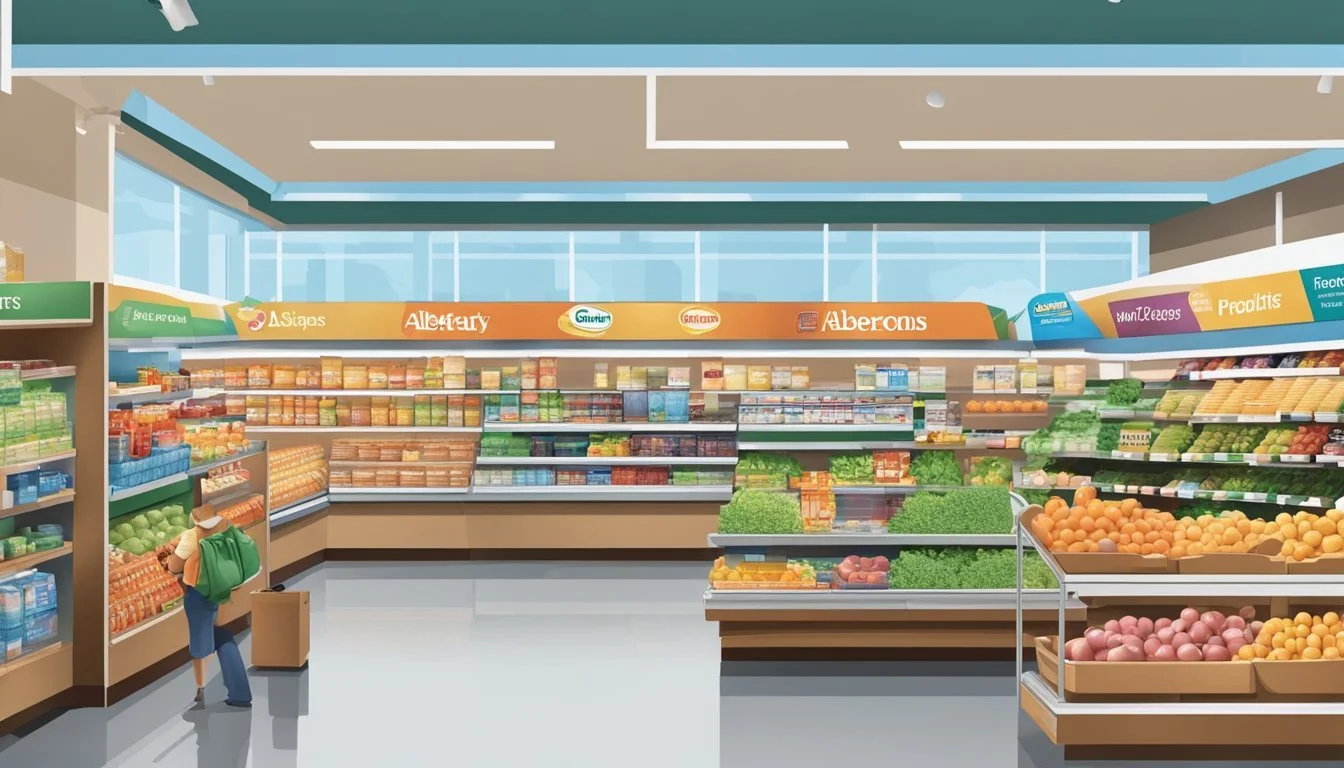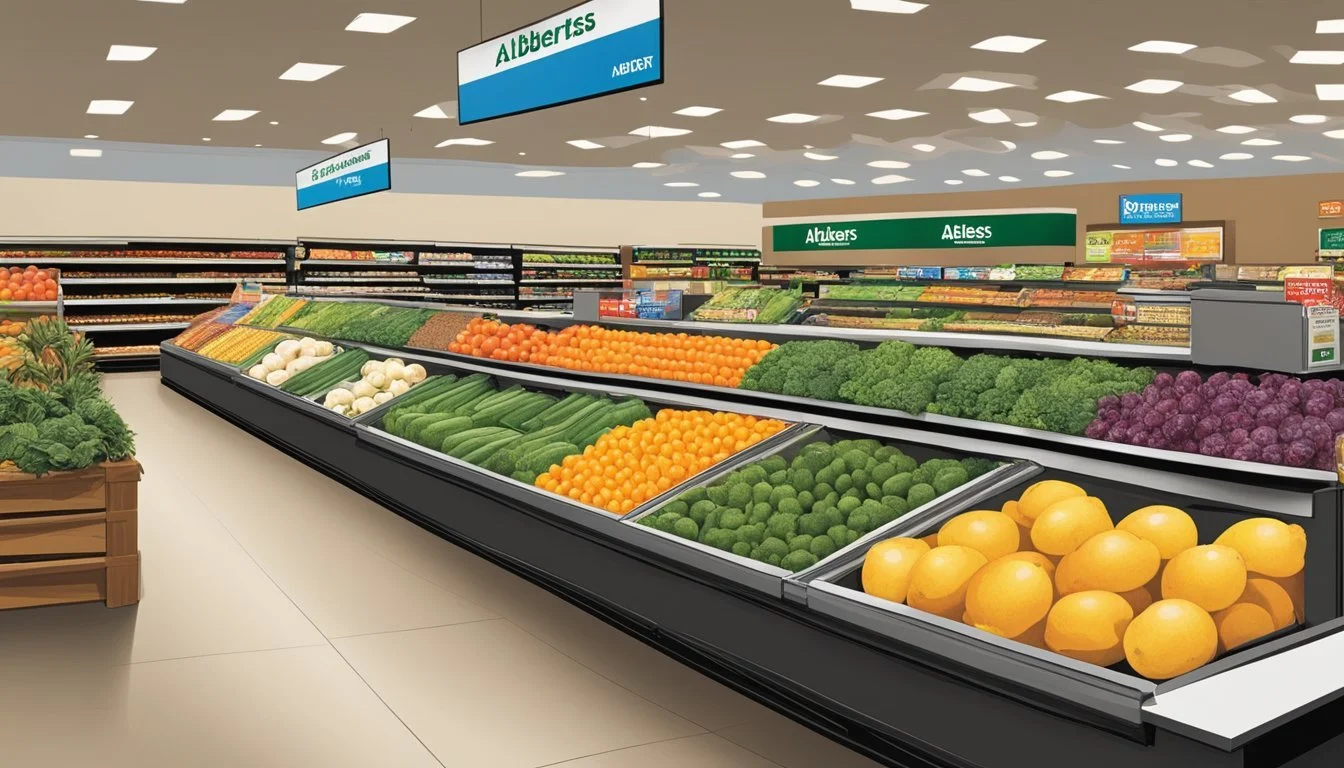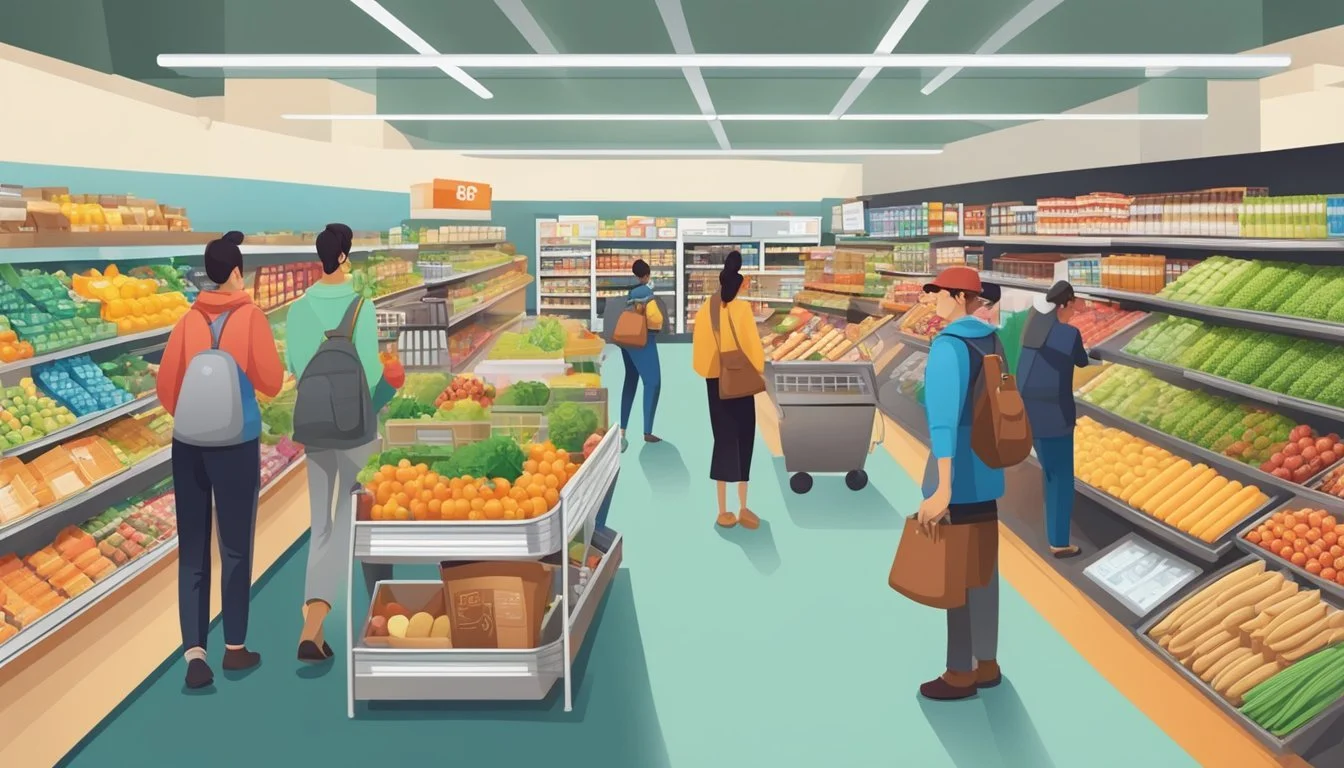Albertsons vs Smart & Final
A Comprehensive Comparison of Prices, Selection, and Service
Grocery shopping can be a significant expense for many households. Choosing the right store can lead to substantial savings over time. Albertsons and Smart & Final are two popular grocery chains that cater to different shopping needs.
Albertsons operates as a traditional supermarket, offering a wide range of products including fresh produce, meats, and household items. Smart & Final, on the other hand, positions itself as a warehouse-style store without membership fees. While Albertsons tends to have lower prices on produce, Smart & Final often offers better deals on bulk items and certain packaged goods.
The choice between these two stores ultimately depends on individual shopping habits and preferences. Albertsons may be more suitable for those seeking a conventional grocery experience with a focus on fresh items. Smart & Final could be the better option for customers looking to buy in larger quantities or find discounts on surplus inventory.
Company Overview
Albertsons and Smart & Final have distinct histories and business models that have shaped their current positions in the grocery industry. Both companies have evolved over time to meet changing consumer needs and market conditions.
History of Albertsons
Albertsons was founded in 1939 by Joe Albertson in Boise, Idaho. The company started as a single grocery store focused on providing high-quality products at low prices.
Over the decades, Albertsons expanded through acquisitions and organic growth. In 2015, it merged with Safeway, creating one of the largest food and drug retailers in the United States.
Today, Albertsons operates over 2,200 stores across 34 states under various banners, including Albertsons, Safeway, Vons, and Jewel-Osco. The company is known for its traditional supermarket format, offering a wide range of groceries, fresh produce, and household items.
History of Smart & Final
Smart & Final traces its roots back to 1871 when it was established in Los Angeles as Hellman-Haas Grocery Company. The company initially focused on supplying food to local businesses and restaurants.
In 1914, it was renamed Smart & Final Wholesale Grocers. The company pioneered the warehouse store concept, catering to both businesses and individual consumers.
Smart & Final has grown to operate over 250 stores across the western United States. It differentiates itself with a unique hybrid format, combining elements of a warehouse club and a traditional grocery store.
The company offers bulk items, food service products, and household goods without requiring a membership. This approach has made Smart & Final popular among small businesses, nonprofit organizations, and budget-conscious shoppers.
Store Experience and Layout
The store layout and overall shopping experience play crucial roles in customer satisfaction and efficiency. Albertsons and Smart & Final offer distinct environments tailored to different shopping needs.
Navigating Albertsons
Albertsons provides a traditional grocery store layout with wide aisles and clearly labeled departments. The produce section typically greets customers upon entry, showcasing fresh fruits and vegetables. Dairy products, meats, and bakery items are often situated along the store's perimeter.
Central aisles house packaged goods, canned foods, and household items. Albertsons' layout encourages browsing, with end-cap displays featuring seasonal items or special promotions.
The prepared foods section offers ready-to-eat meals and hot food bars, catering to busy shoppers. Checkout areas are usually well-staffed, with both regular and express lanes available to minimize wait times.
Navigating Smart & Final
Smart & Final's warehouse-style layout emphasizes bulk purchasing and value. The store's open floor plan features high shelves and wider aisles to accommodate larger carts and pallets.
Bulk items and multi-packs are prominently displayed, appealing to both individual shoppers and small business owners. Fresh produce is available, though the selection may be more limited compared to traditional grocers.
Smart & Final's layout prioritizes efficiency, with a straightforward design that allows for quick navigation. The checkout process is streamlined, often featuring fewer lanes but capable of handling larger orders.
Prepared foods options are typically more limited at Smart & Final, focusing instead on ingredients for food service and catering needs.
Product Range and Quality
Albertsons and Smart & Final offer distinct product ranges and quality levels. Both stores strive to meet customer needs, but their approaches differ in key areas.
Freshness and Quality at Albertsons
Albertsons prioritizes fresh produce and high-quality meats. Their produce section features a wide variety of fruits and vegetables, often sourced from local farms when possible. This focus on local sourcing can lead to fresher items with shorter transport times.
The meat department at Albertsons is known for its quality cuts and trained butchers. They offer a selection of prime and choice beef, as well as fresh poultry and seafood. Many Albertsons locations have expanded their organic offerings in recent years.
Albertsons' dairy section typically includes a mix of national brands and their own store brand products. They often stock specialty and organic dairy items to cater to diverse customer preferences.
Freshness and Quality at Smart & Final
Smart & Final takes a different approach, focusing on bulk quantities and value pricing. Their produce section may have fewer varieties but often offers larger package sizes suitable for families or small businesses.
The meat department at Smart & Final emphasizes value packs and frozen options. While the selection might be more limited than Albertsons, they provide good quality at competitive prices. Fresh chicken is usually available in family-sized packages.
Smart & Final's dairy section tends to focus on basic staples and larger sizes. They may have fewer organic or specialty options compared to Albertsons, but their prices are often lower for standard dairy products.
Pricing and Value
Albertsons and Smart & Final offer different pricing strategies and value propositions for shoppers. Their approaches to deals, discounts, and overall pricing can impact grocery bills significantly.
Price Comparison
Albertsons tends to have higher regular prices on many items compared to Smart & Final. However, Albertsons often runs more frequent sales and promotions that can bring prices down considerably.
Smart & Final positions itself as a low-price leader, especially on bulk and restaurant-sized products. Their everyday prices are typically 10-15% lower than traditional supermarkets on comparable items.
For produce, Albertsons has been found to be notably cheaper. A comparison showed Albertsons' produce prices were $7.65 less than Smart & Final for a basket of common fruits and vegetables.
Deals and Savings Programs
Albertsons offers a robust loyalty program called Just for U. Members receive personalized deals and digital coupons based on purchase history.
Smart & Final provides a more straightforward savings approach. They focus on consistently low shelf prices rather than complex loyalty programs or digital coupons.
Both stores offer weekly ad circulars with sale items. Albertsons typically has a larger number of sale items each week, while Smart & Final emphasizes everyday low pricing.
Loss Leaders and Special Discounts
Albertsons frequently uses loss leaders - deeply discounted popular items to draw customers in. Common loss leaders include milk, eggs, and in-season produce.
Smart & Final rarely uses traditional loss leader pricing. Instead, they offer "club-sized" packages at low per-unit costs.
Both stores provide bulk discounts, but Smart & Final specializes in larger sizes favored by businesses and large families. Albertsons focuses more on household sizes with occasional bulk offerings.
Seasonal sales are common at both retailers. Albertsons tends to have more holiday-themed promotions, while Smart & Final emphasizes value pricing on seasonal items.
Location and Accessibility
Albertsons and Smart & Final differ significantly in their store locations and accessibility. Both chains aim to serve diverse communities but have distinct geographical footprints and store formats.
Albertsons Store Locations
Albertsons operates over 2,200 stores across 34 states and Washington D.C. The chain has a strong presence in the western United States, particularly in California, Washington, and Oregon.
Albertsons typically builds larger, full-service supermarkets in suburban areas. These stores often anchor shopping centers or occupy standalone buildings with ample parking.
Many Albertsons locations offer extended hours, with some stores open 24 hours a day. This flexibility caters to area consumers with varying schedules and shopping needs.
Smart & Final Store Locations
Smart & Final maintains a more concentrated presence, with approximately 300 stores primarily located in California, Nevada, and Arizona. The chain also has a limited number of locations in northern Mexico.
Smart & Final stores are often found in urban and densely populated areas. Their smaller footprint allows them to fit into spaces that may be impractical for larger supermarkets.
The company's warehouse-style format appeals to both household shoppers and small business owners. Most Smart & Final stores operate during standard business hours, though exact times may vary by location.
Customer Service
Excellent customer service is crucial for grocery stores to maintain customer loyalty and satisfaction. Both Albertsons and Smart & Final have distinct approaches to supporting their shoppers.
Customer Support at Albertsons
Albertsons prioritizes personalized assistance in its stores. Employees are trained to be friendly and knowledgeable, ready to help customers find products or answer questions.
The company offers a customer service desk in most locations for returns, exchanges, and general inquiries. Albertsons also provides phone and email support for issues that can't be resolved in-store.
Online shoppers benefit from Albertsons' dedicated e-commerce support team. They assist with order modifications, delivery issues, and product quality concerns.
Customer Support at Smart & Final
Smart & Final focuses on efficiency in its customer service approach. The warehouse-style stores have fewer staff members on the floor, but employees are trained to assist quickly when needed.
The company offers a toll-free customer service hotline for shoppers to report issues or ask questions. In-store managers are typically available to handle more complex problems or concerns.
Smart & Final's website features a comprehensive FAQ section to address common queries. For online orders, the company provides email support and a dedicated team to handle delivery-related issues.
Brand Perceptions and Consumer Loyalty
Albertsons and Smart & Final have cultivated distinct market reputations and consumer loyalty through their unique strategies and offerings. Each retailer faces different challenges and opportunities in shaping public perception and maintaining customer relationships.
Market Reputation of Albertsons
Albertsons has established itself as a mid-tier grocery chain with a focus on quality and variety. Its loyal customer base appreciates the store's wide selection of products and convenient locations. Researchers have found that Albertsons' rewards program captures 96% of purchasing decisions, indicating strong customer engagement.
The company's reputation has been bolstered by positive media coverage and effective advertising campaigns. In September 2023, 11% of U.S. grocery store customers reported hearing about Albertsons in various media channels over a three-month period.
Albertsons' brand perception is also influenced by its private label offerings, which consumers often view as high-quality alternatives to national brands.
Market Reputation of Smart & Final
Smart & Final has carved out a niche as a hybrid retailer, catering to both household consumers and small businesses. Its reputation centers on bulk purchasing options and competitive pricing. According to consumer ratings, Smart & Final's prices are approximately 14% lower than the average grocery store.
The company's no-frills approach appeals to budget-conscious shoppers and those seeking warehouse-style shopping without membership fees. Smart & Final's market reputation is built on value and convenience rather than premium offerings or extensive customer service.
Some consumers praise Smart & Final for its unique product mix, which includes restaurant-quality items not typically found in traditional supermarkets. This aspect has helped the retailer maintain a loyal following among food service professionals and large families.
Convenience Services
Albertsons and Smart & Final offer various convenience services to enhance the shopping experience. Both retailers have implemented digital solutions and delivery options to cater to customers' evolving needs.
Grocery Delivery Options
Albertsons partners with Instacart to provide same-day grocery delivery across its network. Customers can order through the Albertsons app or website for home delivery. The retailer also offers Albertsons Rapid, a convenience delivery service for quick essentials.
Smart & Final provides delivery through third-party services like Instacart and Shipt. This allows customers to receive groceries at their doorstep without visiting the store.
Both chains have expanded their delivery capabilities to meet increased demand for online grocery shopping. Delivery fees and minimum order requirements may vary between the two retailers.
Online Shopping Experience
Albertsons offers a user-friendly mobile app and website for online ordering. Customers can browse products, create shopping lists, and schedule pickup or delivery. The platform often features digital coupons and personalized deals.
Smart & Final's online shopping interface allows users to shop by department or search for specific items. The website provides detailed product information and nutritional facts.
Both retailers enable customers to save favorite items and view past purchases for convenient reordering. Smart & Final focuses on bulk items and business customers, while Albertsons caters more to individual households.
Environmental and Health Consciousness
Albertsons and Smart & Final differ in their approaches to environmental sustainability and health-focused offerings. Both stores have made efforts in these areas, but with varying emphases and implementations.
Eco-Friendly Initiatives
Albertsons has implemented several eco-friendly initiatives across its stores. The company has committed to reducing plastic waste by eliminating single-use plastic bags and promoting reusable options. They've also invested in energy-efficient refrigeration systems and LED lighting to decrease their carbon footprint.
Smart & Final has focused on reducing food waste through partnerships with local food banks and composting programs. The store has also introduced more energy-efficient equipment in its warehouses and stores.
Both chains have increased their use of recyclable packaging for store-brand products. However, Albertsons appears to have a more comprehensive sustainability strategy in place.
Organic and Health-Focused Offerings
Albertsons has expanded its organic and health-focused product lines significantly in recent years. The store offers a wide range of organic produce, meats, and dairy products under its O Organics brand. They also stock numerous gluten-free, vegan, and non-GMO options to cater to diverse dietary needs.
Smart & Final's health-conscious offerings are more limited. While they do carry some organic products, their selection is not as extensive as Albertsons'. However, Smart & Final does offer bulk quantities of healthy staples like nuts, grains, and dried fruits, which can be appealing to health-conscious shoppers.
Both stores provide nutritional information for their products, but Albertsons tends to have more in-store signage and educational materials about healthy eating choices.
Comparison with Other Retailers
Albertsons and Smart & Final face stiff competition from national chains and warehouse clubs. Their pricing and product offerings vary when compared to larger retailers and specialty stores.
Albertsons Versus National Chains
Albertsons competes directly with major national chains like Walmart, Target, and Whole Foods. In price comparisons, Albertsons often falls in the middle range. It's typically more expensive than Walmart but cheaper than Whole Foods.
Albertsons offers a wider selection of name brands compared to discount chains. Its produce section is generally well-regarded, with prices lower than Whole Foods but higher than Walmart.
For organic and specialty items, Albertsons has expanded its offerings but still lags behind Whole Foods and Trader Joe's. The store's loyalty program and weekly sales can provide significant savings for regular shoppers.
Smart & Final Versus Warehouse Clubs
Smart & Final occupies a unique position between traditional grocers and warehouse clubs. Its prices are often competitive with Costco and Sam's Club, especially for bulk items.
Unlike warehouse clubs, Smart & Final doesn't require a membership fee. This makes it attractive for small businesses and families who need bulk purchases occasionally.
Smart & Final's product mix includes both household sizes and larger quantities. This flexibility sets it apart from pure warehouse clubs.
In produce, Smart & Final's prices can be higher than Costco's but are often lower than traditional supermarkets. The store's selection of restaurant-quality items appeals to home cooks and small food service operations alike.
Conclusion
Albertsons and Smart & Final each have distinct strengths as grocery stores. Albertsons often offers lower prices on produce and a wider selection of conventional grocery items. This can benefit families looking to stick to a meal plan and grocery list on a budget.
Smart & Final excels in bulk purchases and may have better deals on certain packaged goods. Its warehouse-style format appeals to shoppers buying larger quantities or stocking up for events.
Both stores provide options for different shopping needs. Albertsons tends to have a more traditional supermarket layout and product range. Smart & Final focuses on a no-frills approach with a mix of household and business customers in mind.
The best choice depends on individual preferences, shopping habits, and specific product needs. Some families may find Albertsons more suitable for routine grocery trips. Others might prefer Smart & Final for occasional bulk buying or specific deals.
Ultimately, savvy shoppers can benefit from incorporating both stores into their shopping strategy. This allows families to take advantage of the best prices and selections each retailer has to offer.










